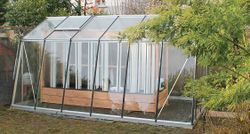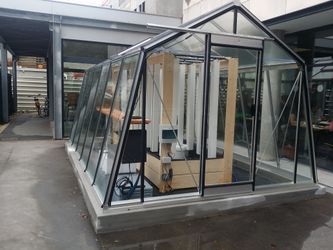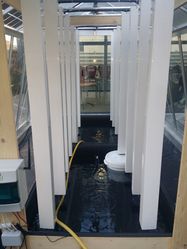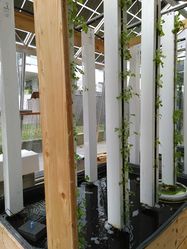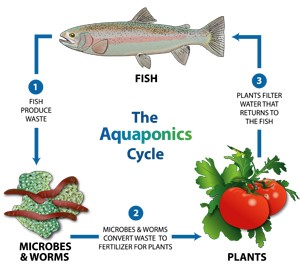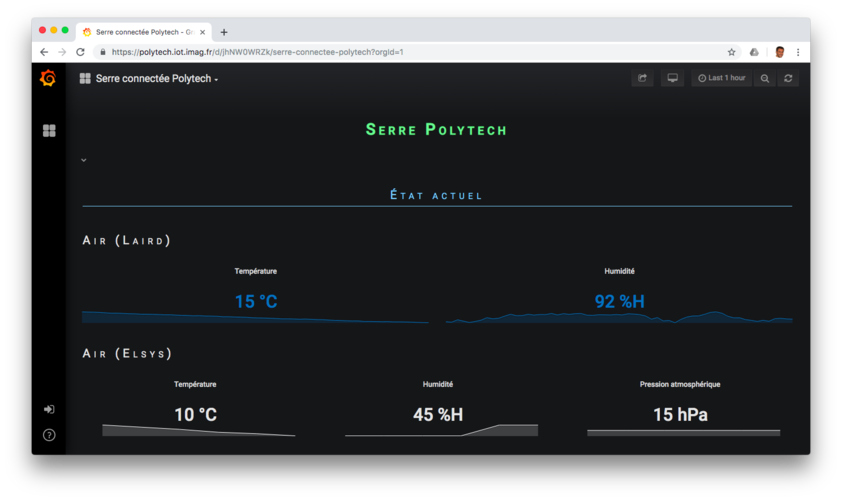ASAC/AP
This project is part of the ASAC project.
Introduction
An aquaponic greenhouse is available for projects made by engineering students from Polytech Grenoble [1]. The greenhouse is also managed by the humanitarian club of the university.
The projects involve students from the RICM/INFO (Computer Network and Multimedia Communication) department, the IESE (Computer Science and Electronics for Embedded Systems) department, and the MAT (Materials) department. The overall goal is also to deploy and configure various sensors, which will verify some intern parameters in the greenhouse, like air temperature and water temperature, humidity rate, or the pH of the water tank in a user friendly environment. To use the exploitation of the greenhouse, some student projects are dedicated to enhance the surrounding environment of the greenhouse with an automatic food distributor, some water tank for rain water, embellish/secure the floor or build some wicking beds.
What is aquaponics ?
The term “aquaponics” comes from the link between the words aquaculture, fish or other aquatic organism farming, and hydroponic, culture of plants by the use of water rich in minerals. Therefore, aquaponics is plants and fish farming in symbioses. This type of culture was firstly used by Aztecs and Chinese. Thus, we can assimilate aquaponics to an ecosystem where 3 types of organisms live in an ecologic cycle:
- The fishes produce waste that will be used as nutriments for the plants. This waste is rich in nitrogen (ammonium and urea), in phosphor and in potassium. Elements that are essential for the plants.
- Bacterias transform the organic material, like ammonium and urea, in nitrites and then nitrates. The nitrates are in mineral form and the plants are able to use them as food.
- The plants filter the aquarium water by assimilating the minerals with their roots. In this way, the nutriments in mineral form can feed the vegetal.
In this system that we are going to set up, a water pump, powered by solar panels, will be used to transport the water with fish waste to the plants.
What is the objective of aquaponics ?
Aquaponics can have different objectives depending on the desire. It can be alimentary, like vegetables and fish farming, but also for hobby or even educational. The main issue is to find the balance between the fish population, the food to feed them, the bacterial population and the plants farmed: an anomaly in any of these parameters can destroy the ecosystem. In long term, this type of culture can be conceivable in large scale to overcome the problems of future food production and soil impoverishment.
Dashboard
The Teams
- ASAC/AP/AP-2017
- ASAC/AP/AP-2018
- ASAC/AP/AP-2019 ASAC/AP/AP-2019-INFO
- ASAC/AP/AP-2020-CO ASAC/AP/AP-2020-INFO
Source code repository
https://gricad-gitlab.univ-grenoble-alpes.fr/ASAC/serre-polytech
- https://gricad-gitlab.univ-grenoble-alpes.fr/Projets-INFO4/19-20/3
- https://gricad-gitlab.univ-grenoble-alpes.fr/Projets-INFO4/18-19/4
